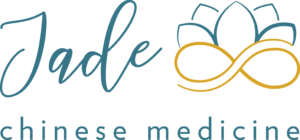Insomnia and Sleep disturbance
Ah… Insomnia. Along with pain, a poor nights sleep is one of the worst things ever! It’s common to have the occasional bout of sleep disturbance with stress or a change in routine (like the arrival of a new baby). Some medications are also well known for interfering with sleep quality. Disturbances like these should self regulate in time without too much difficulty. When it’s a long standing issue, however, life can become seriously difficult.

Quite aside from the obvious issues with insomnia, sleep disturbance and lack of sleep are a medically acknowledged long term trigger of numerous significant and chronic illnesses, including, but not limited to: depression, heart disease, auto immune conditions, obesity, as well as the short term results of anxiety, irritability, poor memory and concentration issues, and stress. As anyone who has had a night of insomnia knows, everything goes rapidly downhill after a night of poor sleep.
An improvement in sleep is one of the most frequently observed, unexpected benefits of an Acupuncture treatment.
Treating from my clinic space, I often observe that people who have no problems sleeping often mention that suddenly they are just sleeping ‘better’. Not necessarily longer, just deeper and feeling more refreshed. *
However, in regard to those who do have definite sleeping problems, there have been numerous insomnia trials indicating that Acupuncture is significantly effective for the treatment of insomnia and sleeping disturbances of varying kinds, including trouble getting to sleep, early waking, and interrupted sleep.
Many people struggle with insomnia: the most recent statistics demonstrate approximately one third of Australians. The most common form of intervention was the use of sleeping pills, which may provide relief briefly. They have, however, have been shown to be ineffective with continued use, and to have numerous side effects including headaches, dizziness, daytime fatigue, body aches, poor memory and concentration issues. Additionally, tolerance develops quickly in most people which means continually increasing dosages to maintain effectiveness.
Recent meta-analysis for Insomnia have demonstrated Chinese Herbal Medicine and Acupuncture:
- Improves sleep quality, total sleep time, sleep efficiency and daytime functioning. This was well maintained for the following three months after the course of treatment ended, while the effect of sham acupuncture, and estazolam (a common sleeping medication) was not significant after treatment was completed.
- Was better than sham acupuncture and estazolam in improving sleep quality (at 2-month follow up)
- Significantly improved daytime functioning.
In fact fMRI has indicated that Acupuncture balances cerebellum activation in insomnia patients, decreases cortisol levels, and reduces activation of the Autonomic Nervous System (ANS) and the Hypothalamic Pituitary Adrenal (HPA) axis. These are considered to be the primary and most important aspects in the regulation of sleep disturbance.
While the regulation and return of your sleeping patterns can definitely take time, Acupuncture and Chinese Herbal Medicine are effective and safe techniques, and can assist in the maintenance and long-term resolution of your sleep disturbance and insomnia.
You should also utilise good sleep hygiene:
- engage in regular daily exercise
- bed at a regular time frame, ideally before 10pm
- reduce exposure to electronic devices at least an hour before your sleep time
- no eating 2hrs before bed
- reduce sugar and caffeine intake later in the day
- reduce electronics in the bedroom – no TV and turn phones onto flight mode or off
* You might be interested to know that this kind of subjective, non measurable result, in clinical trials for Acupuncture, is often bracketed under ‘quality of life’ general statements, often referred to as ‘non – specific effects of acupuncture’ – which means unexpected benefits outside of the subject being actively tested. In relation to clinical trials, this is usually labelled ‘placebo’. Just so that you understand: this is one more word that doesn’t mean what you think it means.
References
- Acupuncture for treatment of insomnia: An overview of systematic reviews, 2019
- Treatment of Insomnia With Traditional Chinese Herbal Medicine, 2017
- Efficacy and safety of acupuncture treatment on primary insomnia: a randomized controlled trial, 2017
- Updated clinical evidence of Chinese herbal medicine for insomnia: a systematic review and meta-analysis of randomized controlled trials, 2015
- Different Cerebellar Responding to Acupuncture at SP6 under Different Sleep States: an fMRI Study. 2013.
- Efficacy of Acupuncture for Primary Insomnia: A Randomized Controlled Clinical Trial, 2013.

